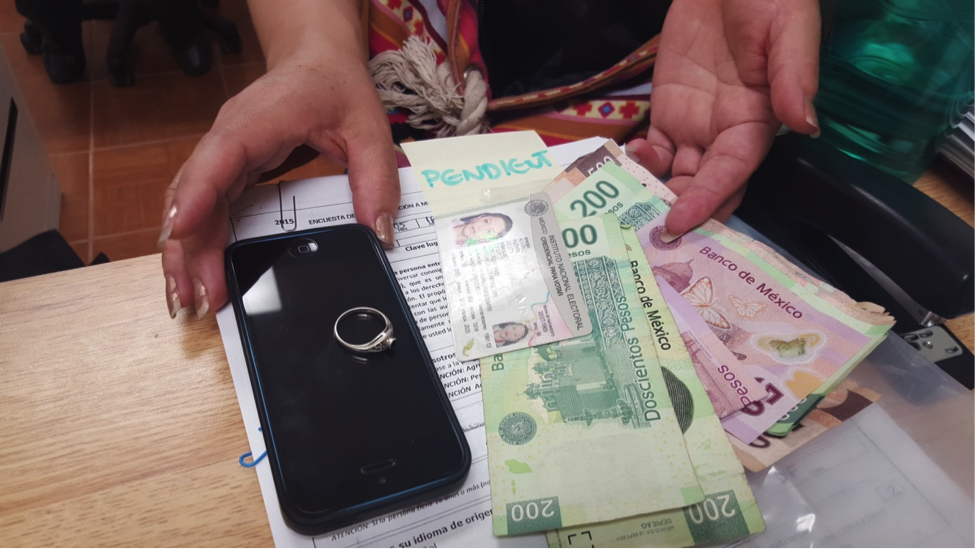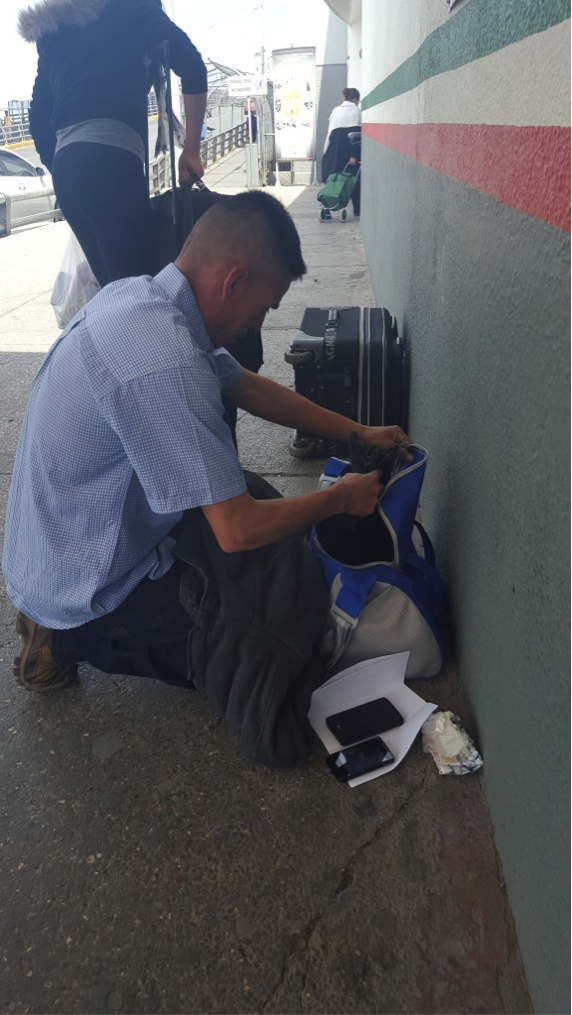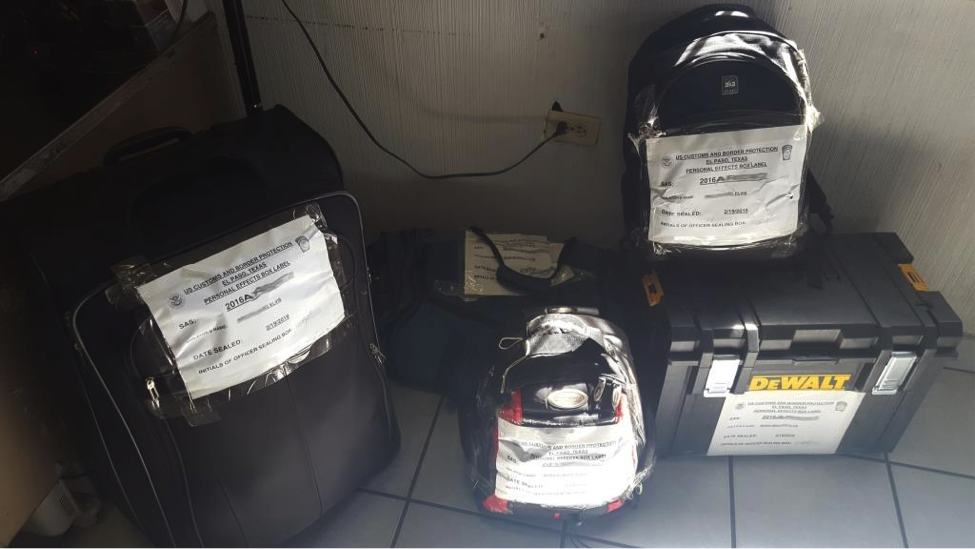When the Government Deports Someone This Is What Happens to Their Stuff
By:
When undocumented immigrants are deported from the United States, they’re often removed with only the clothes on their bodies. And that can cause a cascade of woe, according to Rocío Melendez, an attorney with Programa de Defensa e Incidencia Binacional in Ciudad Juarez, Mexico.
 Programa de Defensa e Incidencia Binacional
Programa de Defensa e Incidencia Binacional
“You need an ID for everything,” Melendez tells ATTN:. “Suddenly they’re undocumented in their home country.”
Joanna Williams, director of education and advocacy for the KINO Border initiative, a bi-border humanitarian group, told ATTN: that being deported without phones, money, or documents makes people more vulnerable.
“When a person’s phone is seized and lost, they can’t call their family, so they have to borrow a phone, which means that number is kept on a stranger’s phone,” Williams said. In one case Williams tracked, the person who lent the phone ended up extorting the deportee’s family.
 Programa de Defensa e Incidencia Binacional
Programa de Defensa e Incidencia Binacional
Last year a new repatriation agreement between the U.S. and Mexico stated, for the first time, that belongings should be returned to the owner after he or she is released from custody. But there’s very little enforcement of those arrangements, immigration experts told ATTN:.
U.S. Customs and Border Protection (CBP) told ATTN: that it automatically gives back a person’s belongings, minus contraband, if removal from the U.S. is swift (within a day or so).
If a person is kept in detention, CPB is still required to return belongings—if it’s less than 30 days after apprehension. If a person is transferred to another facility, it’s more likely their possessions will be lost in a bureaucratic black hole.
 ACLU of New Mexico
ACLU of New Mexico
Some NGOs and humanitarian groups like Kino and No More Deaths can help. When they get a report of lost items from a person deported to Mexico, for example, they will call the Mexican consulate, which then contacts CBP. If CBP has the belongings (and can actually find them), it may send them on to Mexico City. Then the belongings go to the Mexican state where the deported person now resides, but not to their home. That person might travel up to five hours to get their stuff, the whole process taking months.
A spokesperson for ICE told ATTN: it has strict standards in place to ensure that detainees’ personal property—including funds, baggage and other effects—is "safeguarded and controlled,” and that “any allegation of missing property is thoroughly investigated.”
But allegations are usually not thoroughly investigated by ICE or by CBP, Melendez told ATTN:, adding that CPB is the biggest problem.
“We made one request last year in Presidio, Texas, for belongings held less than 30 days, and CPB finally answered us, two weeks ago, saying they had been destroyed,” Melendez said.
Vicki Gaubeca, director of the Regional Center for Border Rights at the ACLU of New Mexico, blames the convoluted deportation process.
“It used to be that people were deported right away,” Gaubeca told ATTN:. “Now, many times immigrants end up moving outside of ICE or CBP custody, to the Bureau of Prisons and the U.S. Marshall's custody.”
And the Marshalls have different rules from ICE or CPB about what belongings can accompany a person while in their custody. That means means more points of failure.
 Programa de Defensa e Incidencia Binacional
Programa de Defensa e Incidencia Binacional
Last year, the American Immigration Council released a study documenting the problem with lost property and concluded that even when a complaint is filed, “it is highly unlikely that the complaint will culminate in any disciplinary action against the immigration-enforcement agent accused of losing or stealing the property in question.”
A new bill just introduced in Congress aims to streamline the process. The Defend Family Values at the Border Act, from Rep. Lucile Roybal-Allard (D-CA), mandates more humane treatment for women and children in detention, and spells out new rules for tracking property.
"I am introducing the Protect Family Values at the Border Act because it is critical that we afford these detained migrants basic, civilized treatment," Roybal-Allard said in a press release.
